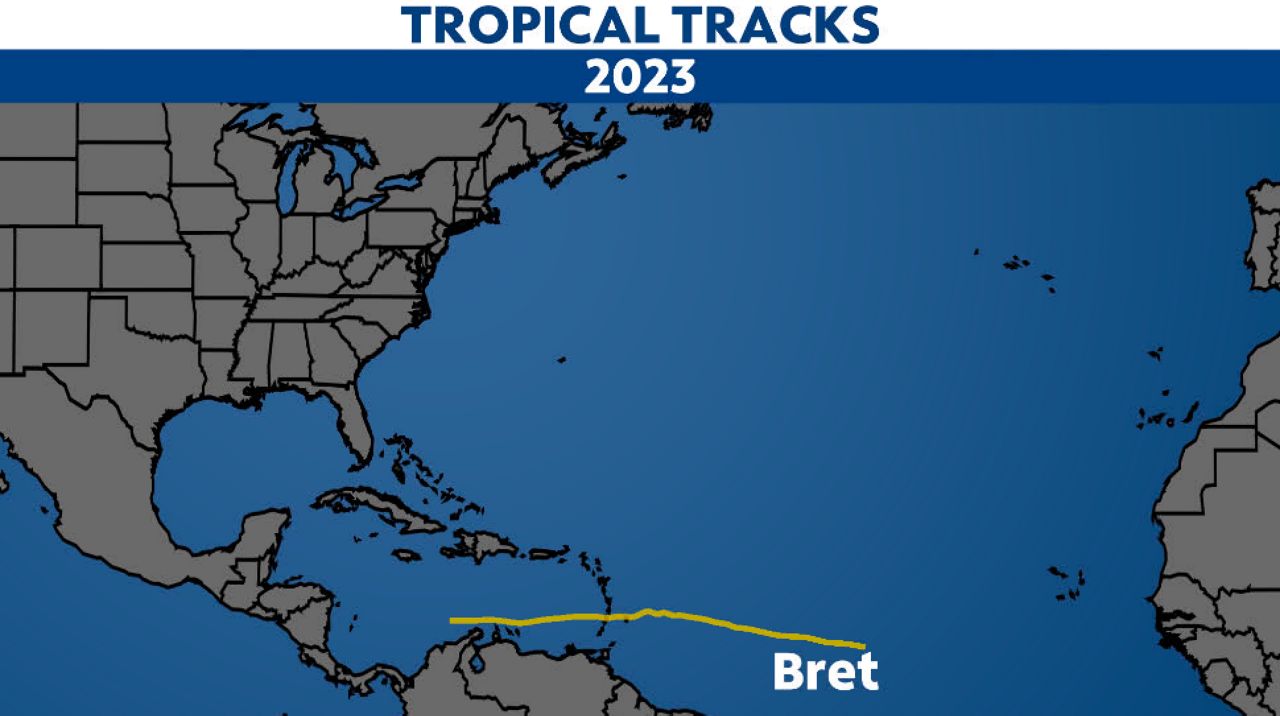In the aftermath of a brief mercenary revolt in Russia over the weekend, much is still unclear, but U.S. Secretary of State Antony Blinken described the situation on Sunday as “extraordinary” and said it showed “cracks” in Russian President Vladimir Putin’s hold on the country.
“Sixteen months ago, Russian forces were on the doorstep of Kyiv, Ukraine, thinking they were going to take the city in a matter of days, erase the country from the map,” Blinken said on CNN’s “State of the Union.” “Now, they had to be focused on defending Moscow, Russia’s capital against mercenaries of Putin’s own making.”
Yevgeny Prigozhin, the leader of a private army long aligned with Putin, turned on his former patron Saturday and marched his troops from the battlefront in Ukraine back into Russia, first to the city of Rostov-on-Don and then onto Moscow, stopping roughly 100 miles outside the capital.
In a settlement negotiated by Belarusian President Alexander Lukashenko, Prigozhin agreed to turn back and head to Belarus, with the Russian government pledging not to prosecute him or his men. The exact contours of the deal have yet to be made public and Blinken said he did not have a clear picture of what was agreed to.
“It may be that Putin didn’t want to debase himself to the level of negotiating directly with Prigozhin, so it was useful to get someone like Lukashenko into this on his behalf,” Blinken speculated.
But regardless of the distance he kept from the situation and the lack of bloodshed, Blinken argued that Putin will be damaged by the revolt and the “direct challenge to Putin’s authority” over the weekend showed “cracks emerge in the Russian facade.”
“This is just the latest chapter in a book of failure that Putin has written for himself and for Russia, economically, militarily, its standing in the world. All of those things have plummeted,” Blinken said in another interview on Sunday with NBC’s “Meet the Press.” “Now with trouble brewing from within, this just, as I said, adds more questions that he has to find answers for.”
Blinken also said the dysfunction and chaos could only benefit Ukraine as they begin their counteroffensive to reclaim land taken by Russia.
“Putin has to worry about what’s going on inside of Russia, as much as he has to worry about what he’s trying to do, not successfully, in Ukraine. I think that creates an additional advantage for the Ukrainians to take advantage of,” he said on CNN. He also noted in a Sunday appearance on CBS News’ “Face the Nation” that the situation was still unfolding, but that it was possible the Wagner army does not return to the fight in Ukraine.
Despite the unrest, the United States’ top diplomat said it was too soon to tell if this challenge to Putin’s authority spelled the beginning of the end for the longtime Russian leader.
“We haven’t seen the last act,” he said on CBS News’ “Face the Nation” Sunday.
And while Blinken said he and other top officials were concerned about Russia’s nuclear stockpile, which numbers in the thousands, “we haven’t seen any change in Russia’s nuclear posture.”
Prigozhin, already dissatisfied with the level of support his men were getting from the military, claimed his march on Moscow was triggered by an attack on the Wagner camps in Ukraine by Russian forces, though it’s unclear if an attack actually occurred.
Prigozhin’s private army rose to prominence during the fighting in Ukraine in 2014, when Russia seized the Crimea region and invaded parts in eastern Ukraine, according to a Congressional Research Service report from earlier this year. They then moved onto fighting for Russia in Syria before spreading to countries throughout Africa and then returning to Ukraine after the full-scale invasion launched last year.
“In country after country in Africa, wherever Wagner goes, death and destruction and exploitation follow,” Blinken said on NBC’s “Meet the Press.”
Blinken wouldn’t go into detail in any of his TV appearances about which officials in the U.S. and Russian government had been in contact this weekend, only noting on ABC News’ “This Week” that Putin and President Joe Biden had not spoken, and he had not spoken with his Russian counterpart.
He also wouldn’t say if the U.S. intelligence community had foreknowledge of Prigozhin’s heel turn, but said it wasn’t a surprise after months of Prigozhin’s public griping with Russian military leadership.
Ultimately, Blinken said, the United States’ focus and priority is supporting the Ukrainian war effort. Whether Putin holds onto power is an “internal matter.”
“It obviously has profound repercussions outside of Russia, including potentially in Ukraine, but fundamentally this is a Russian matter,” Blinken said on CNN. “It’s not our purpose to choose Russia’s leader. That’s up to the Russian people.”




